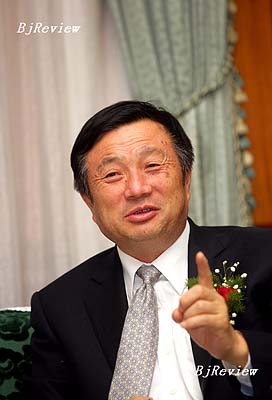|

Though Ren Zhengfei should have been used to various challenges over the past two decades, the company founder may find the recent labor dispute involving his Huawei Technologies Co. Ltd. is the toughest test he has faced in his career.
Some media organizations and legal experts have accused Huawei, China's largest private telecom equipment maker, of attempting to dodge an upcoming labor law by laying off more than 7,000 local employees, who had worked with the Shenzhen-based company for more than eight years, before the year end.
Effective from January 1, 2008, China's new Labor Contract Law stipulates that employees, who have worked for a company for more than 10 consecutive years, are entitled to sign open-ended labor contracts, rather than the more commonly used fixed-term agreements.
Huawei, however, denied the speculation and said that the reshuffle represented just an effort to maintain its competitive edge, as all those who had resigned were handsomely compensated and they are free to reapply for Huawei jobs. The total compensation package is estimated at more than 1 billion yuan (about $133 million).
Most of Huawei staff and industry observers also agree that the action is in line with Ren's management philosophy.
Since he founded Huawei in 1988, Ren, now the president, has always promoted an aggressive "wolf culture" in the company. Now Huawei is a leading player in the global telecommunications market, making third-generation mobile-phone networks, routers and switches. With more than 70,000 employees, its annual sales hit $8.75 billion in 2006, an increase of 45 percent over the previous year. This year, its growth is expected to range between 30 percent and 40 percent compared to that of 2006.
A man with a strong sense of crisis, Ren has paid close attention to preventing his staff from losing their creativity and enthusiasm because of steady jobs and high incomes. In 1996, Huawei's marketing staff who were eager for a fresh start voluntarily terminated their job contracts to carry out new competitions for the posts. The mass resignation later became a frequent occurrence at Huawei as staff took the plunge to leave and sharpen their corporate competitiveness while sacrificing personal interests.
Shenzhen's labor authorities have launched an investigation into Huawaii's reemployment scheme. | 